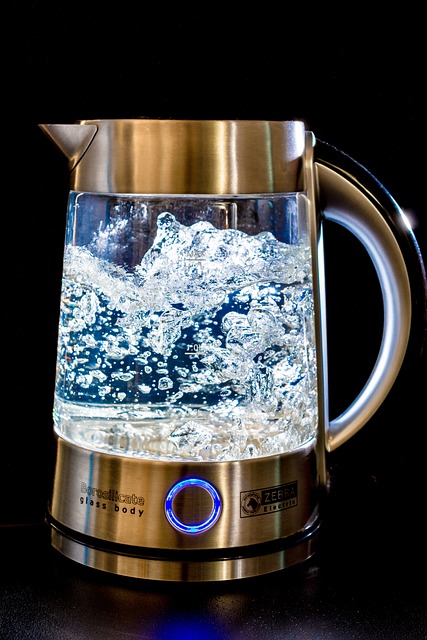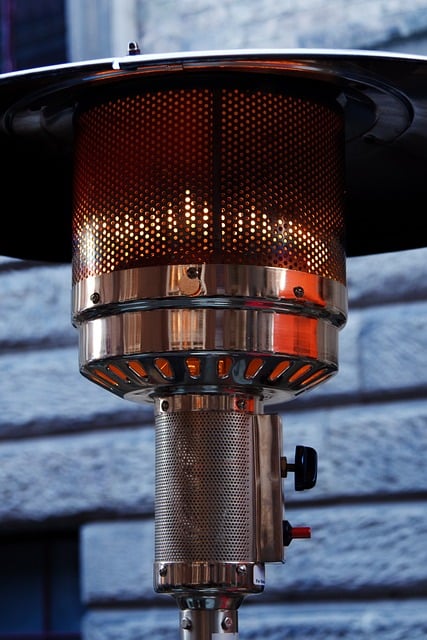Regular water heater maintenance is crucial for reliable hot water supply and energy efficiency. Cleaning, flushing, checking for leaks, and adjusting temperature settings (between 120-140°F) prevent sediment buildup, optimize performance, and extend the appliance's lifespan, reducing repair costs and energy bills. Insulating tanks and pipes further enhances efficiency, ensuring consistent hot water without excessive energy usage or bacterial growth.
Extend your water heater’s life with these simple maintenance tips. Regular cleaning and flushing prevent buildup, while temperature regulation ensures optimal performance and efficiency. Understanding basic water heater maintenance practices can significantly enhance its lifespan, saving you from costly replacements. This guide delves into essential aspects like keeping your tank healthy through regular care and maximizing efficiency to avoid premature failure.
- Understanding Water Heater Maintenance: Why It Matters
- Regular Cleaning and Flushing: Keeping Your Tank Healthy
- Temperature Regulation and Efficiency: Maximizing Lifespan
Understanding Water Heater Maintenance: Why It Matters

Water heater maintenance is an essential aspect of ensuring your home’s hot water supply remains reliable and efficient throughout its lifespan. Regular care can significantly extend the life of this crucial appliance, preventing costly repairs or premature replacements. By understanding the simple yet effective practices involved in water heater maintenance, homeowners can avoid potential issues and maintain optimal performance.
The importance of maintaining your water heater goes beyond just having hot water on demand. Over time, buildup of sediment and mineral deposits inside the tank can reduce its capacity and efficiency. This not only results in shorter shower times but also increases energy consumption, reflecting on your utility bills. Regular flushing and cleaning, along with other maintenance tasks like checking for leaks and ensuring proper temperature settings, are key to preserving the water heater’s functionality and longevity.
Regular Cleaning and Flushing: Keeping Your Tank Healthy

Regular cleaning and flushing are essential aspects of water heater maintenance that can significantly extend its lifespan. Over time, mineral deposits, sediment, and bacteria can accumulate at the bottom of the tank, leading to reduced efficiency and potential damage. By periodically cleaning the tank and removing any buildup, you ensure optimal performance and prevent premature failure.
Flushing the water heater regularly helps remove these accumulated residues, preventing them from scaling the tank walls and reducing heat transfer efficiency. This simple step goes a long way in maintaining the health of your water heater, ensuring consistent hot water supply, and potentially saving you from costly repairs or replacements.
Temperature Regulation and Efficiency: Maximizing Lifespan

Water heaters are designed to maintain a consistent temperature, but improper regulation can lead to inefficiencies and reduced lifespan. Regularly checking and adjusting your water heater’s thermostat is a simple yet effective maintenance tip. Aim for a setting between 120-140°F (49-60°C) to balance comfort and energy conservation. Higher temperatures increase energy usage, while lower settings can lead to bacterial growth.
Efficiency isn’t just about temperature; it also involves minimizing heat loss. Insulating your water heater tank and pipes can significantly improve efficiency, preventing heat from escaping into the surrounding area. This simple step, combined with regular cleaning and flushing, ensures optimal performance and extends the life of your water heater, saving you money on energy bills in the long run.
By implementing these simple yet effective maintenance tips, you can significantly extend your water heater’s lifespan, ensuring consistent access to hot water while promoting energy efficiency. Regular cleaning, flushing, and temperature management are key practices that every homeowner should adopt to keep their water heaters in top condition. Prioritizing water heater maintenance is a proactive approach that saves time, money, and potential headaches in the long run.
